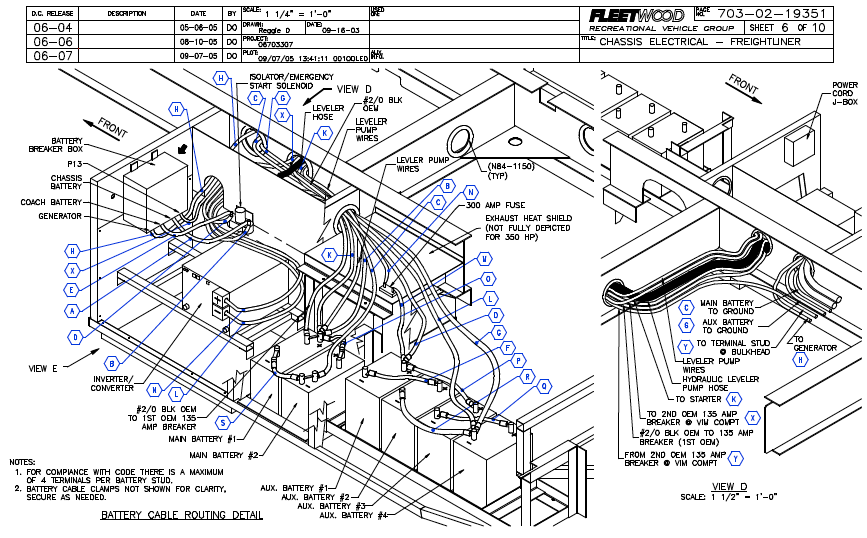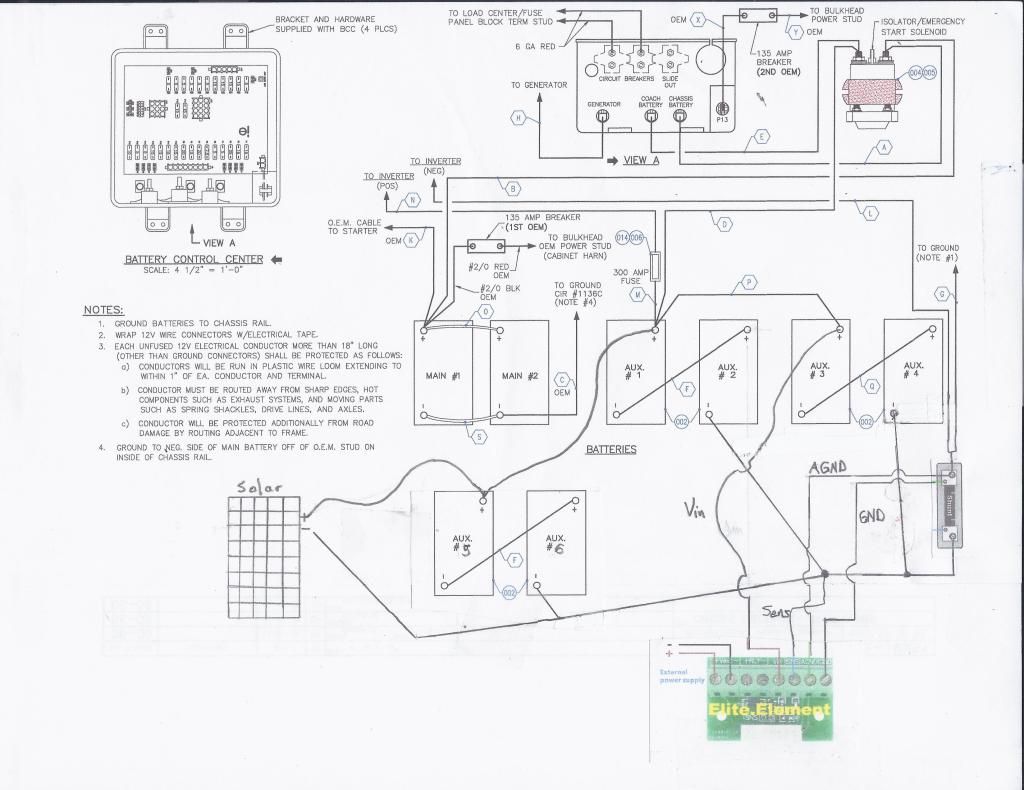gmelton2
Mar 02, 2015Explorer
HELP WIRING AMP HOUR METER
There has been some discussion about these cheap eBay amp hour meters on here of late LINK. I decided to buy one and try it out. When I went to install it yesterday, there were too many wires and not enough instructions for a simple gear head like me.
This is the image for the wiring diagrams that came with the meter:

This is the battery configuration in the rear of my 2006 diesel Bounder:


I also have two additional remotely located golf cart batteries and currently have one solar panel.
It pains me to say this, but I think this is over my head. Help!!!!!
This is the image for the wiring diagrams that came with the meter:

This is the battery configuration in the rear of my 2006 diesel Bounder:


I also have two additional remotely located golf cart batteries and currently have one solar panel.
It pains me to say this, but I think this is over my head. Help!!!!!

